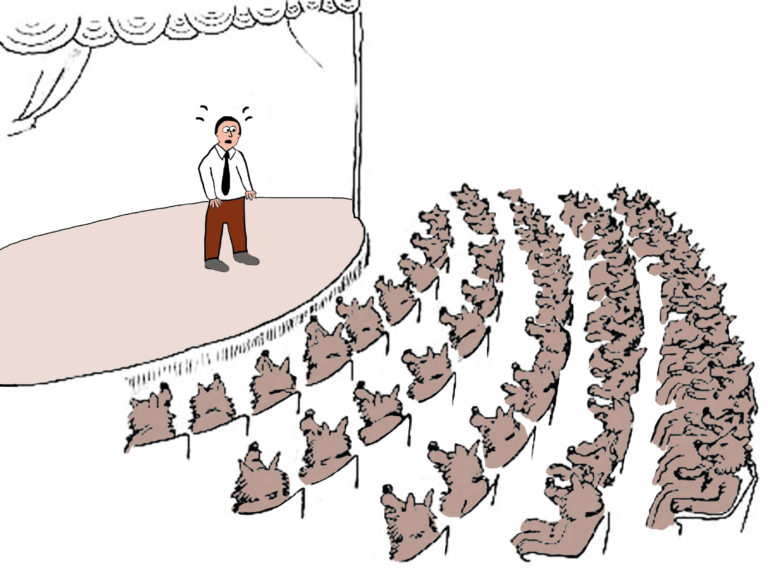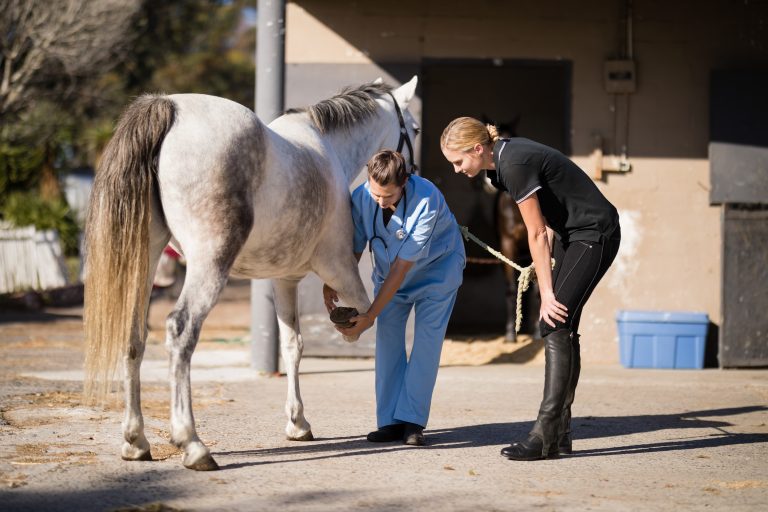
Dr. Stacy Cordivano, well-known for her podcast “The Whole Veterinarian,” presented a compelling argument for improving employee satisfaction and retention at the 68th annual AAEP Convention. She presented evidence from studies that have shown that psychological safety within the workplace is one of the most important factors leading to team effectiveness, learning behaviors, and employee satisfaction.
Definition of Psychological Safety
The definition of psychological safety is “the belief that the work environment is safe for interpersonal risk taking,” she said. Dr. Cordivano explained the concept in the following way: “Psychological safety is a condition in which you feel included, safe to learn, safe to contribute, and safe to challenge the status quo—all without fear of being embarrassed, marginalized or punished in some way.” The speaker asked in a survey question on the Facebook site Equine Vet-2-Vet, “Have you been penalized or punished at work for a mistake or for offering an idea?” Sixty-seven percent of respondents answered “Yes.” Globally, studies have shown that only 47% of all employees feel that their workplaces are psychologically safe, she continued.
Dr. Cordivano said that the basis for psychological safety includes a workplace that accepts candor. Practice leaders must forgive mistakes, see questions as a strength rather than a weakness, and allow employees to question the status quo without fear. A culture that has this kind of safety increases engagement, innovation and productivity, she added. A study by Dr. Amy Edmundson, published in the Harvard Business Review, reported that the highest-performing work teams had high psychological safety. So did a multi-year study at Google, the speaker shared.
Importance of Building Psychological Safety in Equine Practice
Building psychological safety in veterinary practices is important, Dr. Cordivano noted. In the 2021 AVMA State of the Profession report, 47% of those considering leaving the profession said that they are doing so because of the practice culture. The benefits of a workplace with psychological safety, the speaker stated, include decreased turnover and increased engagement. Studies in human healthcare in relation to costs and medical errors have shown that disengaged employees lead to safety risks and staff turnover. Turnover means a higher number of less experienced workers on staff, along with higher recruiting and training costs.
Speaking about Dr. Edmonson’s work, the speaker shared that confronting volatility, uncertainty, complexity, and ambiguity (aka VUCA) in a business relates directly to the bottom line. This is because employee observations, questions, ideas, and concerns provide vital information about what is going on in the organization. She stated that the data are clear in demonstrating that teams with high psychological safety have higher performance measures.
A multi-year study of teams at Google, code-named Project Aristotle, looked at all of the attributes that explain team performance. Attributes included clear goals, dependable colleagues, personally meaningful work, and a belief that your work has impact. In that study, a team was never measured to be “high performing” without the presence of psychological safety. Dr. Cordivano explained that these outcomes follow the fact that interpersonal safety within a team allows for increased learning, collaboration, and innovation. Additionally, she noted, within human healthcare, research shows that employees who feel they work in a psychologically safe environment are able to connect with patients more easily, provide better clinical outcomes, and more easily learn from failure.
Practice Leaders’ Responsibility for Implementing Change
Change is the responsibility of practice leaders, the speaker concluded. In order to increase psychological safety, leaders must be approachable and accessible. They must seek out insights and ideas from their team. They must also have awareness of the importance of a learning mindset, and admit their fallibility, she added. In addition, it is important to be inclusive in decision-making and to model asking for help and taking interpersonal risk.
Once the leadership team has successfully created this environment, providing ongoing appreciation for the team’s contributions is necessary. If team members are unwilling to contribute to the collective environment of safety, practice leaders must take action, she said. Practice leaders must continually encourage and reinforce the goal of progress, not perfection. By staying open to new ideas and feedback, your practice will benefit from benefit more engaged and productive employees. As a result, they will positively affect the culture and the financial bottom line.









